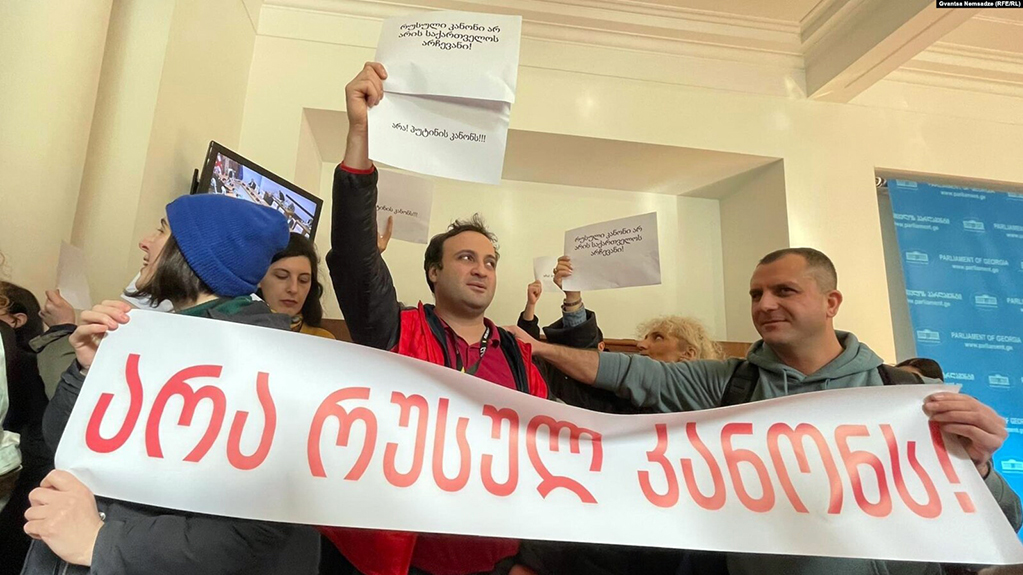The Constitutional Court Accepts Lawsuit of Formula TV Journalists Giorgi Kikabidze and Gennadi Kvachakhia, challenging constitutionality of Parliament's media restriction rule.
News
The case pertains to the directive issued by the Speaker of the Parliament on February 6, 2023, outlining a new accreditation procedure for media representatives in Parliament. According to the directive, journalists are required to terminate interviews upon the refusal of a Member of Parliament, an office employee, or a visitor to have the interview recorded. Failure to comply with this request may result in the suspension of accreditation for the journalist, as stipulated in the mentioned directive.
On May 11, 2023, the accreditation of Formula’s journalists Giorgi Kikabidze and Gennadi Kvachakhia was suspended in accordance with the aforementioned rule. The journalists had attempted to pose a question to a Member of Parliament regarding Russia’s President, Vladimir Putin, and his stance on the implementation of a visa-free regime for Georgia. The MP declined to comment and urged the journalists to cease the interview. Subsequently, following the broadcast of the story, the head of the parliamentary staff decided to bar both 'Formula' journalists from accessing the parliament building for a month.
According to the assessment of the non-governmental organization Georgian Democratic Initiative (GDI), the Speaker of the Parliament's directive runs counter to the right to freely receive and disseminate information. Specifically, the directive potentially enables the parliament to misuse its authority by restricting the accreditation of journalists whose inquiries might discomfort the ruling party. GDI contends that, with the looming threat of accreditation suspension, journalists may shy away from posing critical questions to the ruling party, thus impeding the public's access to information on current issues in the country. GDI, which supports this perspective, played a pivotal role in preparing the constitutional lawsuit.
In 2023, in addition to Giorgi Kikabidze and Genadi Kvachakhia, the Parliament suspended the accreditation of several journalists under this rule. The accreditations were revoked for those journalists whose questions were unwelcome and unanswered by the deputies of the Georgian Dream party.
The Constitutional Court has accepted another lawsuit prepared by the Georgian Democratic Initiative (GDI). In accordance with the Speaker of the Parliament's order dated September 4, 2023, pertaining to security in the Georgian Parliament Palace, visitors to the Parliament were prohibited from displaying banners, distributing informational materials, and affixing or posting materials intended for demonstration, such as posters, banners, and inscriptions. The same order also forbade the entry of sound amplifiers and sound signal devices into the building without permission from the Parliament's office. The rationale behind these prohibitions was to adhere to security regulations within the parliament. According to the GDI's assessment, the adopted rules unjustifiably restrict freedom of expression and impede citizens' participation in parliamentary activities.
The Chairman of the Parliament issued the first order a few days before the adoption of the Russian law on “foreign agents,” and the second order after the Russian law was overturned by the efforts of the demonstrators.















